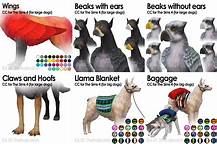Where Do I Buy a Pet Monkey?
Owning a pet monkey can be an enriching experience, but it's important to approach the decision with careful consideration and research. Before you embark on the journey of becoming a monkey owner, there are several factors to take into account, including legality, ethical concerns, suitability, and proper care.

Legality
1. Legal Restrictions: Before considering purchasing a pet monkey, be aware of the legal restrictions in your area. Some countries, states, and cities have laws prohibiting the ownership of certain types of primates as pets. Research local regulations to ensure you're compliant with the law.
2. Permits and Licenses: In some jurisdictions, obtaining a permit or license may be necessary to own a pet monkey. These permits may require specific qualifications, such as having adequate facilities and experience in caring for primates.
Ethical Considerations
1. Wild vs. Captive-Born: Consider whether you're purchasing a wild-caught monkey or a captive-born monkey. Wild-caught monkeys may have experienced trauma and may find it challenging to adapt to captivity. Captive-born monkeys are generally better suited for life as pets.
2. Social Needs: Primates are highly social animals. Keeping a monkey in isolation can lead to psychological distress and behavioral problems. Consider getting two or more monkeys to provide them with companionship.
3. Habitat and Space: Monkeys require a spacious and stimulating environment. Ensure you have the necessary space and resources to provide your monkey with a suitable habitat.
Suitability
1. Temperament and Behavior: Monkeys can have diverse temperaments and behaviors. Research the specific species you're considering to understand its unique characteristics and ensure it's a good fit for your lifestyle.
2. Activity Level: Monkeys are typically active and playful animals. Be prepared to provide them with ample opportunities for exercise and enrichment activities.
3. Training and Socialization: Monkeys may require training and socialization to learn appropriate behaviors and interact safely with humans. Be patient and willing to commit to a consistent training program.
Proper Care
1. Diet and Nutrition: Monkeys have specific dietary needs that vary depending on their species. Consult with a veterinarian or primate specialist to develop a well-balanced diet that meets your monkey's nutritional requirements.
2. Veterinary Care: Monkeys require regular veterinary care. Find a veterinarian experienced in treating exotic animals and establish a regular schedule for check-ups and vaccinations.
3. Grooming and Hygiene: Monkeys need regular grooming to maintain their hygiene and well-being. This includes brushing, bathing, and trimming nails.
Owning a pet monkey is a significant commitment that requires extensive research, preparation, and ongoing care. If you're dedicated to providing a suitable and loving home for a monkey, you can find reputable breeders or rescue organizations that work responsibly and ethically to place monkeys in appropriate homes.
Declaration: All article resources on this website, unless otherwise specified or labeled, are collected from online resources. If the content on this website infringes on the legitimate rights and interests of the original author, you can contact this website to delete it.




